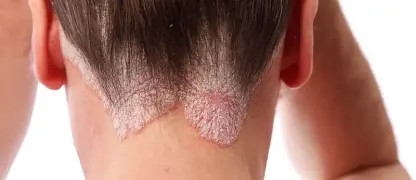That itchy, ring-shaped rash could be more than just dry skin. Don't ignore the signs of body ringworm; understanding this common fungal skin infection is the first step to getting rid of it fast and preventing its spread.
What are the main causes of Tinea Corporis?
- This fungal skin infection is highly contagious and spreads through direct skin-to-skin contact with an infected person or animal, such as a household pet.
- You can also get body ringworm by touching contaminated objects, including towels, clothing, bedding, or surfaces in locker rooms and public showers.
- The fungi that cause ringworm thrive in warm, moist environments, making people who sweat heavily or live in humid climates more susceptible to infection.

Key symptoms of Tinea Corporis to watch for
- The most classic of tinea corporis symptoms is a red, circular, and itchy rash with slightly raised edges, which often resembles a ring.
- The center of the rash may appear clear or have scattered red bumps, while the border can be scaly, and it tends to expand slowly.
- This rash can appear anywhere on the body or face (tinea faciei), and it is important to differentiate it from conditions like eczema for proper treatment.
How can you prevent Tinea Corporis effectively?
- The best prevention of ringworm involves keeping your skin clean and dry, especially after exercising, and washing your hands frequently to avoid spreading fungi.
- Avoid sharing personal items like towels, clothing, hairbrushes, or sports gear, as these can easily harbor and transmit the ringworm-causing fungi between people.
- Wear waterproof footwear, such as sandals or flip-flops, in public showers, locker rooms, and pool areas to protect your body from contaminated surfaces.
>>> See more: Pneumocystis pneumonia - A risk for the immunocompromised
Image of Tinea Corporis Body Ringworm





>>> Don't miss: Sporotrichosis - The "rose gardener's disease" explained
While some home remedies exist, an effective ringworm treatment cream, like clotrimazole, is often necessary. If the rash persists or spreads, consult a healthcare provider for a correct diagnosis and a stronger antifungal cream prescription.
>>> Learn now: Tinea capitis - How to treat ringworm of the scalp





